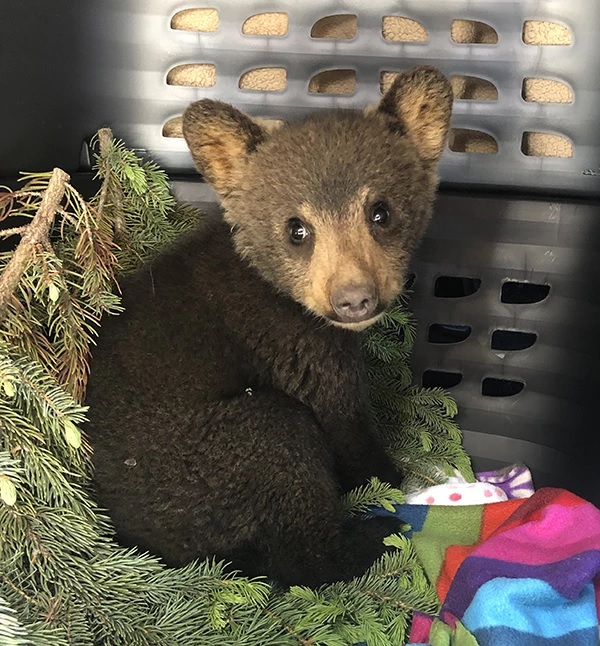This year, more than 1,450 animals have been cared for at the Alberta Institute for Wildlife Conservation‘s hospital northwest of Calgary — that’s a 27 per cent increase from last year.

The AIWC is specifically dedicated to admitting injured and orphaned wildlife. It’s a registered charity and non-profit society that has been operating since 1993.
Holly Lillie, executive director of AIWC, said as cities continue to expand, more wildlife is impacted and demand for their services increases.
“Ninety-five per cent of the patients admitted to AIWC are as a result of conflict with humans in some way, such as window strikes, vehicular collisions, and domestic cat and dog attacks,” Lillie said.

The AIWC clinic has outdoor enclosures, a surgical suite, a laboratory, an X-ray room, and various care units. Their team is small, with only six full-time staff and three part-time staff.

Get daily National news
“Most of our money is going towards the upkeep of our patients, whether that’s staff treatments, whether that’s medication, whether that’s food. We do X-rays and surgeries on-site, and of course, that does come with a lot of higher cost items,” said Katrina Terrill, the AIWC community engagement co-ordinator.
Erin Casper, a rehabilitation manager at AIWC, said the team strives to give the best possible care to wildlife so they can be released back into the wild.
“It can be very difficult to do that because most places that treat wildlife are not-for-profits, like ourselves, and it’s hard to raise the funds to treat them as well as you would your own pet,” Casper said.
Their free Wildlife Hotline provides information to the public and addresses wildlife questions or concerns. It saw a big boost in activity this year.
“We’ve received over 5,300 calls to our hotline this year, which is 1,000 more than in 2018,” Lillie said.
To help meet the increasing demand for services, AIWC has launched its third annual “Give the Gift of Saving Wildlife” campaign.
They’re asking Albertans to consider AIWC in their Christmas giving, which will help ensure that injured and orphaned wildlife have a place to go when in need.




Comments